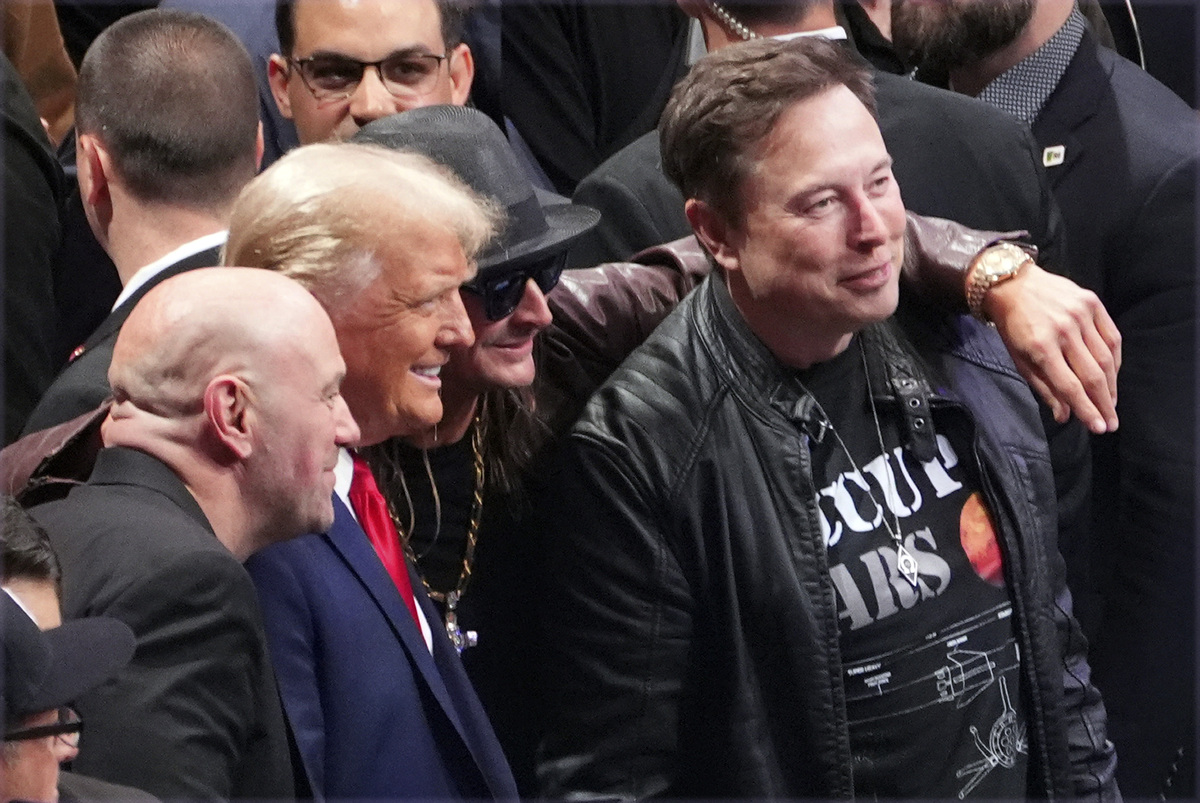In the first major flex of his influence since Donald Trump was elected, Elon Musk brought to a sudden halt a bipartisan budget proposal by posting constantly on his X megaphone and threatening Republicans with primary challenges.
The social media warnings from the world’s wealthiest man preceded Trump’s condemnation of a measure negotiated by GOP House Speaker Mike Johnson, which effectively killed the stopgap measure that was designed to prevent a partial shutdown of the federal government.
Washington was scrambled a day after Musk’s public pressure campaign. Trump on Thursday declined to say if he had confidence in Johnson, telling NBC News, “We’ll see.” And there was no clear path to keeping the government open beyond Friday, raising the specter of a government shutdown heading into the holidays. Congressional Democrats mocked their GOP counterparts, with several suggesting Trump had been relegated to vice president.
“Welcome to the Elon Musk presidency,” Democratic Rep. Robert Garcia of California wrote on X.
What was clear, though, is Musk’s ascendance as a political force, a level of influence enabled by his great wealth. In addition to owning X, Musk is the CEO of Tesla and Space X.
“There is no doubt he does wield a lot of influence over Republicans right now due to his proximity to Trump,” said Chris Pack, former communications director for the National Republican Congressional Committee and the Senate Leadership Fund.
But Pack also said that Musk’s threats pose potential risks for House Republicans, who begin next year with a five-seat majority that will shrink temporarily because of Trump’s nomination of some GOP lawmakers to administration posts.
“This isn’t going to help pass the agenda if you are going to cost a bunch of Republicans in very razor-thin moderate seats if you’re going to make them lose in primaries,” Pack said. “All that does is give the keys to these districts over to the Democrats.”
Musk spent an estimated $250 million during the presidential campaign to support Trump, contributing heavily to America PAC, a super political action committee that deployed canvassers, aired TV ads and reached voters digitally in battleground states. He had signaled after the election he was willing to back GOP primary challenges to Republican members of Congress seeking re-election in 2026 who waver on Trump’s appointments and agenda.
He renewed the threat pointedly Wednesday.
“Any member of the House or Senate who votes for this outrageous spending bill deserves to be voted out in 2 years!” he wrote on X. He also called it “one of the worst bills ever written.”
Musk wasn’t alone in fanning GOP anger against the bill, which included several compromise measures to get Democratic support in the Senate in the final weeks before Republicans take control of that chamber. Biotech entrepreneur and former GOP presidential candidate Vivek Ramaswamy, who is Musk’s partner leading the new Department of Government Efficiency, also posted against the bill, as did Trump’s eldest son, Donald Trump Jr.
Musk played down his role at times, suggesting after some praise online, “All I can do is bring things to the attention of the people, so they may voice their support if they so choose.” And the president-elect told NBC News that he had spoken to Musk prior to the Tesla CEO’s first posts.
“I told him that if he agrees with me, that he could put out a statement,” Trump said.
But throughout the day Wednesday, Musk replied to posts on X from Republican House members announcing opposition to the bill with words of thanks, and punctuating their public commitments.
And he took a victory lap after Trump came out against the bill: “The voice of the people was heard. This was a good day for America.”
He was responding to Kentucky Rep. Andy Barr’s post: “The phone was ringing off the hook today. And you know why? Because they were reading tweets…from Musk and Vivek Ramaswamy.”
